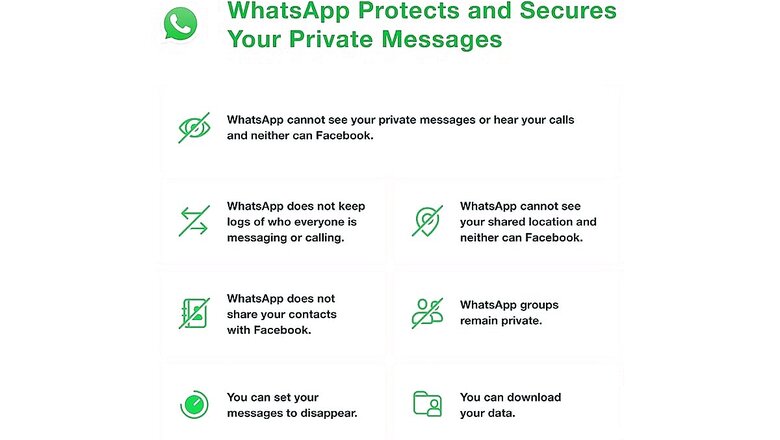
views
WhatsApp has issued a new statement in a bid to remind its users that despite its recent disclosure of a changed operation policy and terms of service, the personal privacy of users on the app has not changed with the update. After its latest policy change highlighting the removal of an option to opt out of Facebook’s data collection from WhatsApp, users have taken note of the privacy concern and started switching to apps that do not sell data in as rampant a way as the Facebook group. Now, WhatsApp’s latest statement has yet again attempted to convince users that their privacy and security are still intact.
WhatsApp’s multi-point statement claims that it does not see personal messages or listen to people’s phone calls. It also claims that it does not log whom you’re talking to, or track your location when you share it. It also claims to not share your contacts with Facebook, and contrary to multiple recent reports, all groups will seemingly remain private. However, the fine line that WhatsApp appears to have missed here as well is that while they speak about security in this statement, the issues that were raised in light of WhatsApp’s policy changes were linked to user privacy.
In 2016, WhatsApp had informed users that it will be sharing with Facebook specific user data, such as device and network identifiers, time spent on app and frequency of using the app, and other such data. Back then, however, WhatsApp had kept open an option for users to say no to some of these data collection attempts. That option was removed after about 30 days, since when WhatsApp has added over a billion new users to its app. None of these users got that option, so there’s practically no ‘opt out’ option for any user on the app.
While WhatsApp still maintains that no sensitive user data is given out by the app, it is important to note that such identifier data is what is used mainly by Facebook to keep its user tracking and targeted advertisement revenues afloat. The longest standing argument states that since the service is offered without a financial fee, users availing it may need to arrive at a compromise in some way or another. However, at this point, the real problem appears to be how users are not given an option to express their consent or dissent against the service’s data sharing decision. For anyone who is not willing to share their device identifiers and be tracked all over the internet, the only route is to delete their WhatsApp account and switch to a different messaging service.
While it is based on this that services such as Telegram and Signal have grown of late, it remains to be seen how big a dent does WhatsApp’s privacy debacle leave on its user base. WhatsApp still remains to be the most convenient internet messaging service for most, and given its size, will likely remain so in the immediate future as well.
Read all the Latest News, Breaking News and Coronavirus News here



















Comments
0 comment